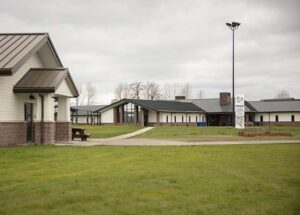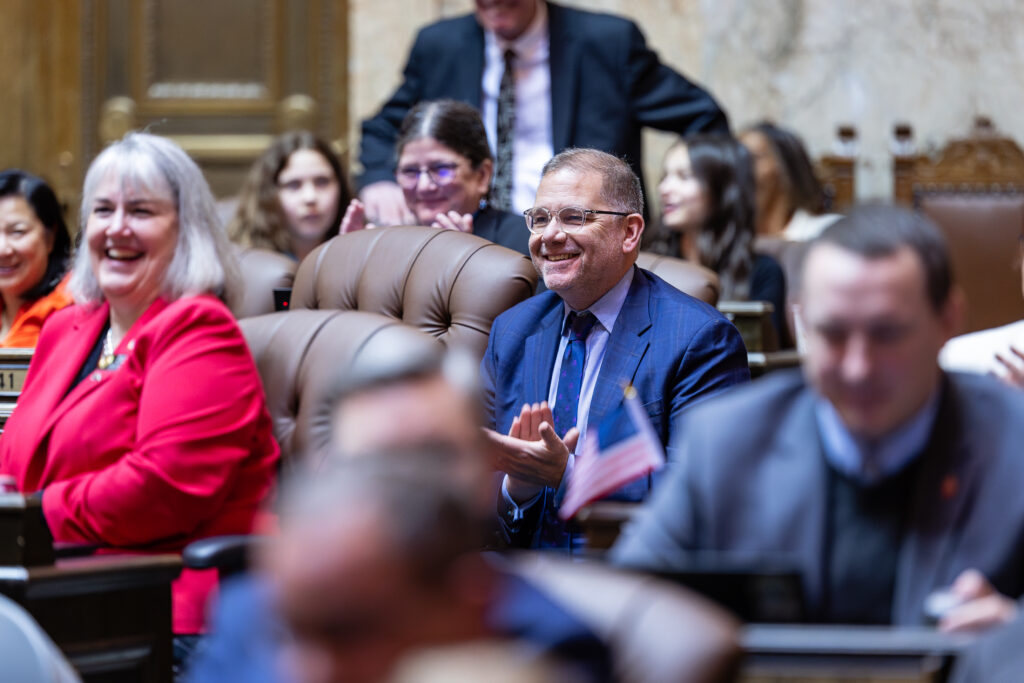Friends and Neighbors,

We are days away from Sine Die, the last day of the session, on April 27. That means we are spending most of our time debating bills and passing legislation.
I’m proud to share several of my bills have made it through the legislative process, such as HB 1174 which increases access to court interpreter services. Soon, I will share a final summary of where all my bills landed and the status of other legislative priorities.
In this update, I wanted to share the latest on some priority legislation, and how you can stay engaged with my office once the session ends.
We must do better by Washington renters
Rent stabilization has made it further in the legislative process than it ever has before, and we’re encouraged. However, House Democrats passed a 7% cap on annual rent increases to give Washington tenants predictable and more affordable rent increases. When the Senate passed it out of their chamber, they raised that limit to 10% plus inflation. That means less predictability and significantly larger rent increases.

If you look at how much the state’s average rent would have increased over the last five years under each of these plans, Washington renters would potentially be on the hook for an additional $7,800 dollars in annual rent. This is unpredictable, unsustainable, and unacceptable for Washington renters. We need to do better. I will continue to fight for a policy that provides real relief to renters in Washington who desperately need it.
A chance to reimagine how we do juvenile rehabilitation
While sharing our successes, I also want to acknowledge a significant disappointment. Recently, the House failed to advance SB 5296 — a transformative juvenile justice bill that would have prioritized rehabilitation over incarceration and addressed the root causes of overcrowding, racial disparities, and ineffective sentencing in our system. For the youth at Green Hill and across Washington, this isn’t just a missed policy opportunity — it’s a moral failure.

Too many young people, especially Black, Brown, and Native youth, remain confined for excessive hours in overcrowded and under-resourced facilities. Green Hill currently houses 225 individuals in a facility rated for 180. These conditions jeopardize rehabilitation, strain staff, and violate the very principles of justice and care we claim to uphold.
We are taking steps to address immediate capacity needs. Both the House and Senate operating budgets include $26.4 million and $27.5 million, respectively, for the Department of Children, Youth, and Families to operate Harbor Heights — a new 46-bed (plus 2 emergency beds) juvenile facility set to open in 2026. Additionally, the Capital Budget proposes $3 million to support future capacity planning for juvenile rehabilitation. These investments are critical, but they must be paired with policy reform to make a lasting impact.
As we move into the interim, we are committed to realizing the vision of SB 5296 — creating a system that truly centers youth, reduces recidivism, and invests in communities. Every child deserves a chance at redemption, dignity, and a future defined by hope — not incarceration.
My plans for the interim
As we approach the end of the session, this means I will soon have updates and summaries on the bills that passed and where our budgets ended up, including investments made in 21st district. Be on the lookout for that information coming soon.

After transitioning out of session, I will keep an eye on the bills I passed this year and start working on bills for next year. This means meeting with stakeholders and hammering out the details so the legislation gets to a place where it can pass.
You can still reach out to my office during the interim. Connecting with you is always important and helps inform my legislative priorities. I value hearing your ideas, thoughts, concerns, or questions. If you reach out, my office can and will get back to you.
Thank you for your support and feedback during the session. I look forward to connecting with you throughout the summer and fall.
Sincerely,
![]()
Rep. Strom Peterson
